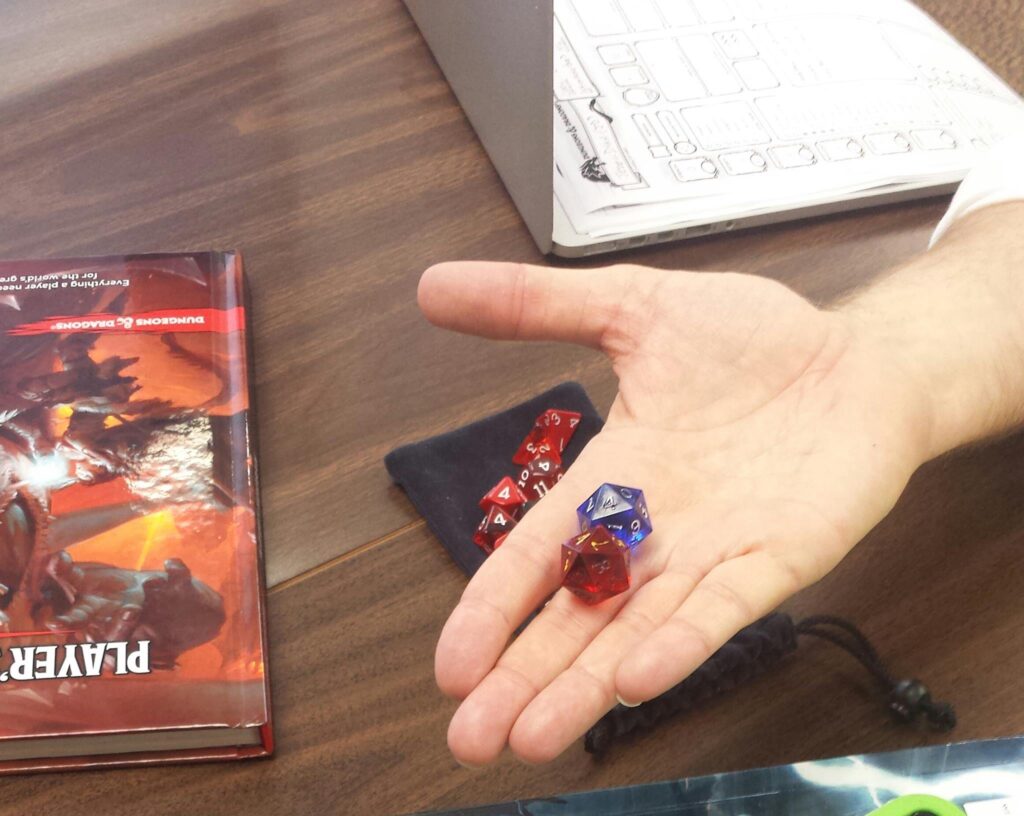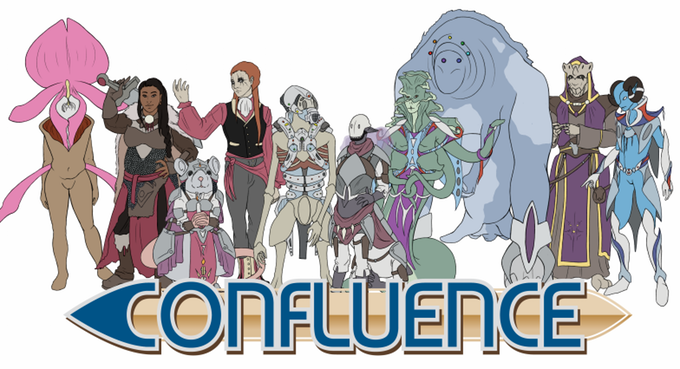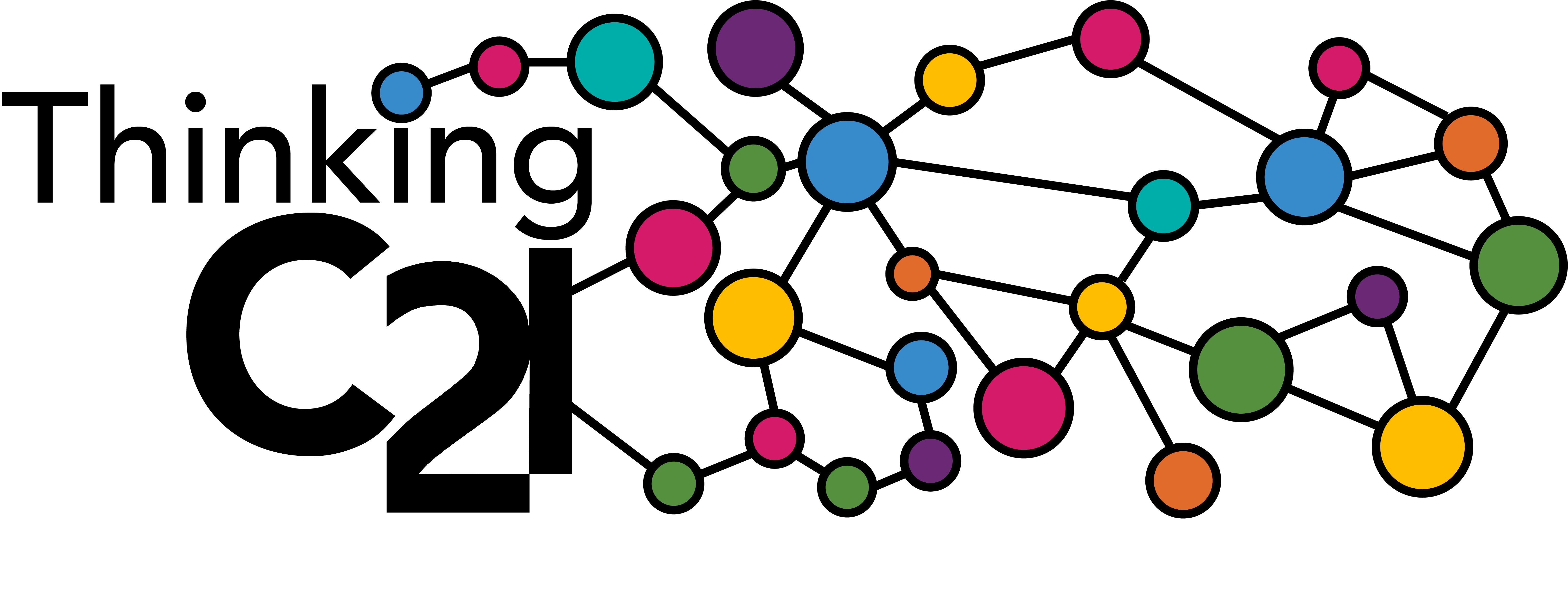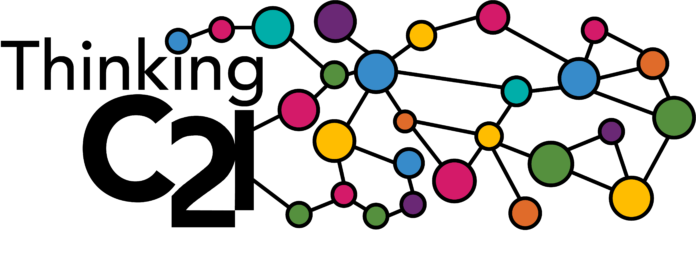
By Laya Liebeseller (PhD student in Anthropology at UW-Milwaukee and a Graduate Fellow at the Center for 21st Century Studies)
I study play communities, those communities that form in the playing of games. Most of my work focuses on role-playing games (RPGs). I wrote my master’s thesis on live-action role-play, a game that in practice looks quite a lot like theatre without an audience. The following is a story that comes from my time with a group called Serious Play, which is now the Digital Culture Collaboratory with C21. Though I do not study tabletop RPGs (TTPRGs), it was this game that kicked off a group that actively supports each other in our various endeavors, and is the reason I have been able to accomplish as much as I have during the last two years.
In May 2017, I had just graduated from my master’s program in Anthropology at UWM, and was moving on to being a PhD in the same department. I was fresh off the line, still shiny. It was a rare summer of freedom, in which I caught up on the sleep I so sorely missed during the flurry of thesis writing. I had made friends with another games scholar and anthropologist earlier in the year, Dr. Krista-Lee Malone, who had introduced me to the Serious Play troupe. She had been looking to start a TTRPG with our troupe mates, as a sort of bonding activity, as at this point we were still relatively unfamiliar with each other, and she asked me to be the gamemaster (GM). I have been GMing since 2009 and since I had little else to do that summer, said yes. Around the same time, a friend of mine, Dane Asmund, was playtesting his own TTRPG, Confluence, and was looking for playtesters. I thought it would be the perfect game to play with Serious Play that summer: something fun that we could all engage with.

In late May, Krista-Lee and I were speaking generally about the game. She had always referred to troupe members by their first names (Nathan, Kris, Thomas, and the two of us). All of sudden, something in my brain clicked into place, and rather randomly in the middle of the conversation I said, “Wait, were you talking about Dr. Malaby? Thomas Malaby?” – who was and still is my academic advisor, and an active faculty member of Serious Play since its founding in 2013. She laughs, of course, at my slightly shocked tone and says, “Yes, Thomas Malaby.”
It took me what felt like several hours to catch up with what I had already agreed to.
I would be the GM for my advisor.
My advisor would be my player.
I was going to be in charge of the game in which my advisor was playing.
I was apprehensive, at first, because power dynamics are real, and within academia we take advisor-advisee boundary maintenance seriously, even if we rarely talk about it. Anthropologists particularly love to talk about boundary maintenance – at least when it pertains to other people. Some of the anthropological touchstones on boundaries include the sacred and profane dichotomy of Emile Durkheim,The Raw and The Cooked by Claude Levi-Strass,Purity and Danger by Mary Douglas, and the work and play dichotomy of Victor Turner. We like to study the ways in which people categorize and compartmentalize, and then, of course, we love to problematize those boundaries. However, once we begin speaking of our own boundaries, the ways in which we compartmentalize, categorize, and separate our lives, I often hear…crickets. So, of course, navigating what happens when your advisor is a player at your table and you, the graduate student, are the gamemaster, is hard to discuss openly. In the end, though it was not without its tribulations, we did end up finding our way, even through the awkward bits.
In the beginning, I felt like I had to walk a fine line, unsure of how to proceed through the flip in power dynamics. To draw on Erving Goffman’s theory of everyday interactions as a kind of performance of social rituals, I was nervous because when you play, you perform, which by itself can sometimes be overwhelming. When you GM for your advisor, your performance in that role can conflict with your performance in the role of a subordinate grad student, because as GM you have the power to set the terms of the game and adjudicate disputes. When you play on Twitch (which came later), you are then also performing for an outside audience, and of course you are also always performing for yourself (and in my case, I am often my harshest critic). Ultimately, and particularly in the beginning, this produced a lot of anxiety. I was nervous the story would not be good enough, that the players would not mesh, and character death loomed over my head – as there is always the chance that your world, which as the GM you represent, kills one of your players. And as a future article of mine will explore, you never know exactly how character death will be taken, or how it might change interpersonal dynamics in a gaming group. However, it can also be ridiculously fun.
Telling your advisor, “No, you can’t do that,” is an interesting experience, one I wish I could suggest to everyone, but won’t. Though Gary Alan Fine put it a bit more eloquently in his work, Shared Fantasy, there is something about being in a play space, and feeling like you can be goofy, awkward, or weird with the other players at the table that helps to create a sense of community, and breaks down normative boundaries. There is something about watching your professor fumble, and pray to the Dice Gods for something better next time, that humanizes the professor in a way that hadn’t happened yet, as I was still a wide-eyed, bushytailed academic newbie, still high off seeing my thesis printed for the very first time. It created a new model of interaction, which in some ways complicated the advisor-advisee relationship, and in others it created an ease that wasn’t there before. More, it did what Krista-Lee had hoped it would: it brought the entire group together, and started the formation of a camaraderie that has only grown as we have found other avenues to strengthen that bond.
I will say, very seriously, that I am lucky. Lucky that I had Nathan, Kris, and Krista-Lee playing with me, some of the best players for whom I have had a chance to GM. Lucky that nothing went massively wrong, as I still wholly believe that the presumption of safety we lend to TTRPGs is sometimes misplaced. Friendships are ruined, bridges burned, and communites broken at those tables. Playing together can show where the hidden alliances lie, deepen interpersonal fractures, and force grievances to the surface in ways some people aren’t ready for. Play is a risk, one that often goes extraordinarily well, as it did in this case, but a positive outcome is not guaranteed. I was lucky that I had 2 professors, a PhD candidate, and an amazing librarian willing to sit down with a recently graduated master’s student as an equal, and lucky to have an advisor who knows deeply the power of fun.
Praise be to the Dice Gods who make the imaginary real. Play on.





